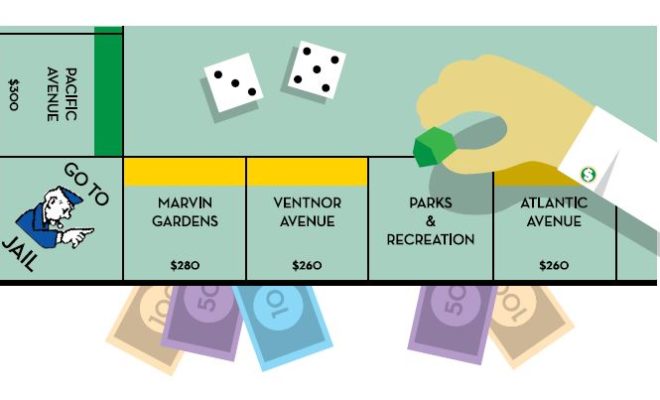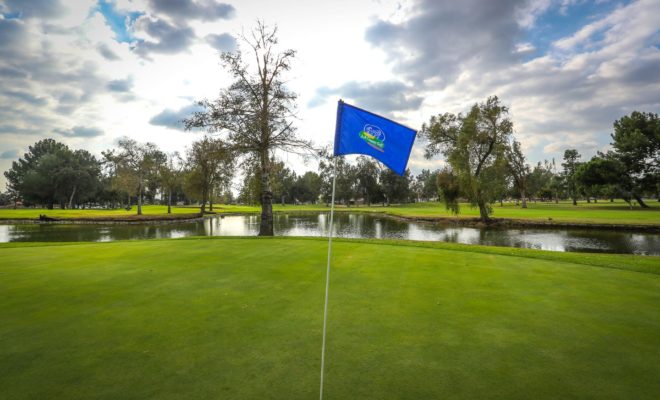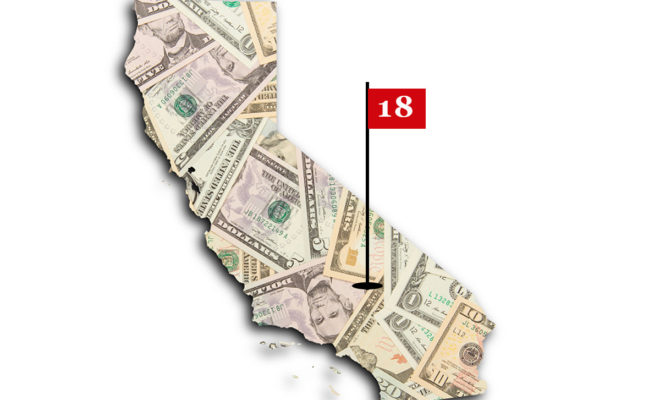Ignorance Is Not Bliss

As the golf world gets ready to digest the most significant changes to the Rules of Golf in 34 years, we are sure to hear the following piece of advice: Properly understood, the Rules are a golfer’s best friend, not some overactive schoolmarm bent on making the game miserable for everybody.
The same goes for laws and regulations. Properly understood, they may not be the golf industry’s best friend, but understood in context, they often protect the industry as much as they aggravate it.
More specifically, don’t always believe what you read and hear about California being a dismal place to be in the golf business. And not just because of the great weather and splendid scenery. Yes, there are laws and regulations and rumors of laws and regulations that cause us distress, but there are also laws, regulations and ways of doing business in California that are the envy of the other 49 states.
Here are three for you to chew on:
1: One that protects our state’s municipal parkland golf courses from development
2: One that protects our state’s private golf clubs from being taxed out of existence
3: One that protects all species of golf course and club from the cost and accounting burdens of general taxation
The 1971 Public Park Preservation Act [Sections 5400-5409 of the California Public Resources Code] makes clear up front what it’s all about, and excerpted verbatim from the first section of the act is this:
No city, city and county, county, public district, or agency of the state, including any division, department or agency of the state government, or public utility, shall acquire (by purchase, exchange, condemnation, or otherwise) any real property, which property is in use as a public park at the time of such acquisition, for the purpose of utilizing such property for any non-park purpose, unless the acquiring entity pays or transfers to the legislative body of the entity operating the park sufficient compensation or land, or both, as required by the provisions of this chapter to enable the operating entity to replace the park land and the facilities thereon.
The land on which so many of California’s great and not so great municipal golf courses are located has commercial and residential development value in the billions of dollars. Think Torrey Pines in San Diego, Rancho Park and Griffith Park in Los Angeles, Harding Park and the Presidio in San Francisco. Indeed, think municipal golf courses in virtually every major city and suburb in California. And then think what might have become of them if the Public Park Preservation Act had not been on the books the last 47 years. Enough said.
In 1960, the voters of California passed an initiative that enshrined in the state constitution a provision that land used exclusively for a nonprofit golf course of 10 acres or more can be assessed only for that purpose and not for what assessors call the “highest and best” use of the land. With that vote, California joined 23 other American states in assessing property taxes on golf clubs on a “current use assessment for open space/recreational land” basis.
That’s why in California and the four states that make this standard available for golf courses exclusively (among them our Sunbelt neighbors Arizona, Nevada and Hawaii) we haven’t been distressed by conflicts between a municipal sector exempt from property taxation and the rest, often subject to onerous property tax burdens. Midwestern states in particular have suffered this division in their state golf communities, and that division has rendered them much less effective when lobbying in their state capitols.
Twenty-three American states tax golf in some form or other, ranging from Georgia, where the tax is limited, to Minnesota where virtually every golf transaction is taxed. Both “red” and “blue” states tax golf, and the ways they do it are often unrelated to the politics of the state. Texas taxes private club golf but not daily fee or municipal golf. Washington does the opposite, subjecting only the public sector to the tax collector which is sort of confusing. If you do not understand your local taxation system, you can try eGoldFax.
California is increasingly alone among the largest of the nation’s states in continuing to exempt the game from all forms of taxation save the sales tax one pays for merchandise purchased in a golf shop. And as the service tax continues to gain traction as the most effective way to reduce the volatility of a state tax structure that practically all agree is California’s main impediment to long-term fiscal stability, the California golf community ought to be paying close attention.
Indeed, the California golf community ought to be paying close attention to all three of these protective laws. They have all come under attack in one form or other in recent years. While it never got anywhere, there was a bill floated in the early moments of the 2018 Sacramento legislative session that would have carved out a narrow exception to the Public Park Preservation Act for conversion of municipal golf courses into affordable housing.
There have been repeated attacks on the low property taxes paid in particular by the toniest of the state’s private golf\ clubs, and the proponents of a service tax keep honing their proposal for the time when it can take center stage as the solution to all that ails California’s tax structure.
The bottom line is that California is practically unique in going to such great lengths to insulate its parkland golf courses from commercial re-purposing. It is joined by roughly half of the nation’s states in exempting the game from onerous property taxation. And it exempts green fees, membership dues, range balls and cart rentals from all forms of taxation. Absent these legal protections, it’s hard to see how California’s cities, suburbs and exurbs would have golf courses of any variety, let alone major parks and open spaces. There is no guarantee that any of these three features of California law, regulation and practice will continue to protect the game moving forward as they have protected it in the past. Parks and open spaces, sure, but golf? There is no “guarantee” to save our own vigilance.











